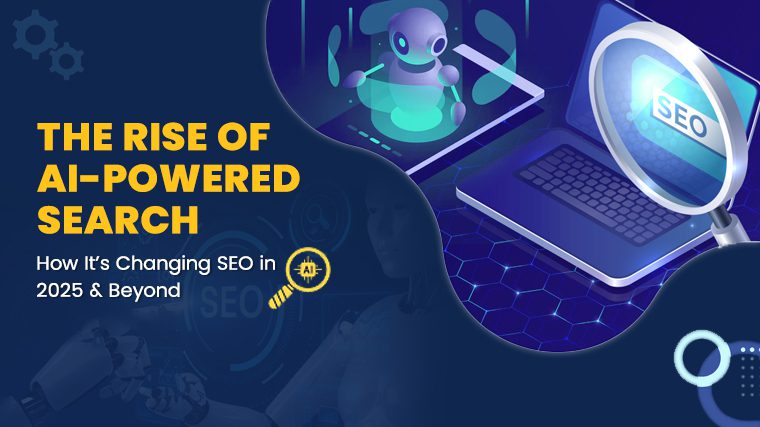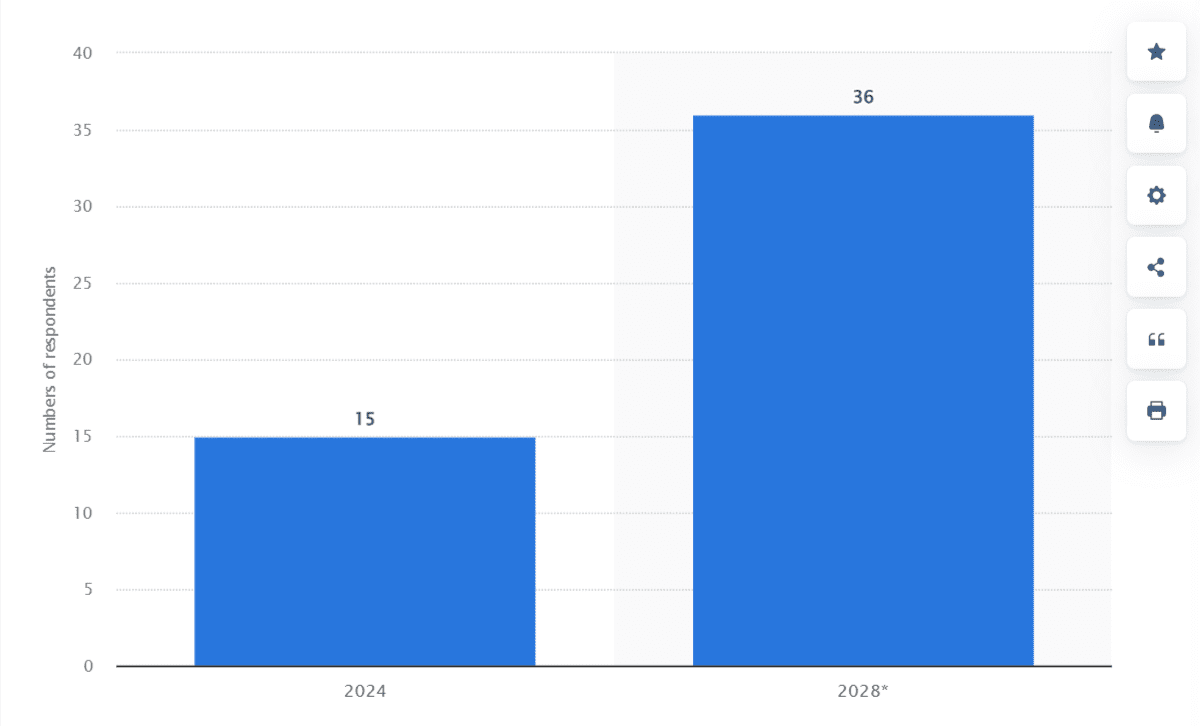
We have to admit that search isn’t what it used to be. The days of typing a phrase into Google and seeing ten blue links are coming to an end. When you ask a question now, you get a full answer right away without having to click anything. This change isn’t random; it’s happening because AI-powered search experiences are becoming more popular, and it’s changing the rules of marketing faster than most businesses are ready for.
Search Engines are Now Like Smart Assistants
What we’re seeing isn’t just an upgrade to the technology. It’s a change in the way people look for and use information. In the past, you had to look through results, compare sources, and put together your own answers. Today? AI does most of that work for you.
Tools like Google’s SGE (Search Generative Experience) and Microsoft’s Bing AI are driving this change. These engines don’t just pull up pages; they also make personalized answers based on what you ask. And a lot of the time, users don’t go beyond what the AI gives them right away.
If your brand isn’t in that AI-curated response, it might not be seen at all.
SEO Alone Won’t Work Anymore
It used to be easy to get to the top of the search results: just optimize your content for keywords, get some backlinks, and get there. That formula still works, but it’s not enough anymore. Because AI is directly affecting the answers, just being on the traditional rankings doesn’t mean you’ll be seen anymore.
This is where Generative Engine Optimization, or GEO, comes in. It’s a new level of planning. You can’t just optimize for search engines anymore; you also need to optimize for how AI pulls, understands, and summarizes your content.
Even if you’re technically ranked high, the AI won’t include your content in its answers if it doesn’t think it’s useful or trustworthy.
In 2024, around 15 million U.S. adults turned to generative AI as their primary tool for online search, a number projected to soar to 36 million by 2028, according to Statista. This rapid growth reflects a major shift in search behavior marketers can no longer ignore.
 So, What Does GEO Really Mean?
So, What Does GEO Really Mean?
Generative Engine Optimization means organizing content so that AI tools can easily understand it. These systems get bits of information from the best sources and mix them together to make a response that sounds like a person. The AI will skip over your blog or page if it isn’t clear, direct, or well-organized.
You must:
- Be ready for real user questions
- Give answers that are clear and helpful
- Organize your content so that it is easy to get and use again.
In other words, your writing should sound like something a smart assistant would say directly to help someone. Keyword stuffing and vague fluff won’t work.
What AI Engine Optimization Services Do
Most businesses don’t have the time or know-how to make these changes on their own. That’s why AI engine optimization services are becoming more popular very quickly. These experts know how AI engines look at web content and help brands change their plans based on that.
They do more than just basic SEO:
- They help you put your content into groups based on topics and subtopics.
- They format answers clearly and directly for AI summaries.
- They fix technical problems that could confuse algorithms.
- They teach brands how to sound more powerful without sounding like robots.
This isn’t about following the latest trends. It’s about making it easier for people to find your business where they are now looking in AI-powered responses.
Why It’s More Important Than Ever to Find the Right SEO Partner
Some SEO companies aren’t ready for this change. Some people are still using the same tricks they did five years ago. If you want to stay competitive, you need to hire and SEO company in the USA that is forward-thinking and knows how GEO works and how AI changes the game.
The best SEO companies in the US are now combining old-school search methods with AI strategies. They want to know not only what keywords to rank for, but also what kinds of answers people want and how to get your voice into the conversation that AI is already having with users.
This includes everything from checking your content to making technical improvements to rewriting your FAQs so they are easier to read and scan.
Things to Look Out For
It’s not always easy to switch to a GEO-focused strategy. Here are some things to think about:
Less Clicking, More Stress
People might not go to your site even if your content is linked to. It’s not just about getting traffic anymore; it’s about brand visibility and influence.
Better Standards for Clarity
AI tools like content that is simple and well-organized. Your writing probably won’t be used if it’s too vague or too hard to understand.
Trustworthiness Is Key
AI tends to trust sources that have been around for a long time. It’s more important than ever to build your reputation through reviews, citations, and regular publishing.
It’s a Moving Target
AI is changing very quickly. Things that work now might not work in a year. It is very important to stay flexible.
What You Can Do Right Now
You don’t need to change everything at once, but there are a few smart things you can do right away:
- Start making your content easier to understand. Use a tone that is clear and helpful. Don’t use jargon. Pay attention to giving real answers.
- Make your pages more organized. Break things down with bullet points, headings, and summaries.
- Make changes to old blog posts. Update old information and fix the formatting so that it matches how AI works now.
- Find out how your SEO partner is changing. If they aren’t talking about GEO or AI optimization, it might be time to find a new agency.
Frequently Asked Questions (FAQs)
- What exactly are AI-powered search experiences?
It is now how search engines show answers to your query—using AI to give quick answers up top, before any links. It’s changing how people find and trust information online. - Is Generative Engine Optimization replacing regular SEO?
Not replacing—but evolving it. GEO helps your content show up in AI-generated summaries, not just in search rankings like traditional SEO. - Why are AI engine optimization services suddenly important?
Because users aren’t clicking like they used to. If AI pulls your content into its answer box, you’re way ahead of the competition because it is the first thing that the search engine displays on the top. - Do small businesses need these services too?
Absolutely. You don’t need to be a giant brand. GEO helps local and niche companies get noticed when AI tools pick what to show users, increasing your chances of being clicked. - How can an SEO Company in the USA help with this shift?
A good seo company in the USA knows how to rework your site and content for AI overviews. At e intelligence, we do just that—without losing the SEO fundamentals we make your brand to be appear in AI overviews. - Should I wait before investing in GEO?
Waiting might cost more in the long run. AI is already changing how people search, so getting ready now just makes sense.
Last Thoughts
Search isn’t just about being found anymore; it’s also about being chosen by the AI as a source of truth. That’s a big deal. Even if your site is technically optimized, if your brand doesn’t show up in the right places, no one will see it.
It’s not just smart to work with a reliable SEO company in the USA that gets this change; it’s necessary. This isn’t just a phase. Search experiences powered by AI are here to stay, and they will keep getting better.
Don’t wait until your traffic stops completely. People who get ready for the future of marketing now will own it.
Adapt to AI Search
AI isn’t just assisting search, it’s rewriting the rules. Discover how AI-powered search is reshaping SEO in 2025 and what you must do to stay ahead.




